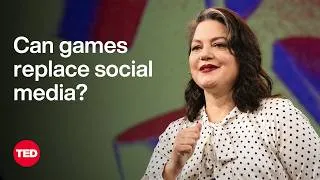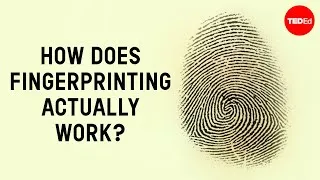How to Use Can, Could and Be Able To - English Modal Verbs for Ability
英语语法 - 情态动词 能力
716,510 views ・ 2015-04-13
请双击下面的英文字幕来播放视频。
00:01
Hello, I'm Oli.
0
1709
1161
您好,我是Oli。
00:02
Welcome to Oxford Online English.
1
2870
2250
欢迎来到Oxford Online English。
00:05
In this lesson, you can learn about using
modal verbs to express ability.
2
5120
5260
在本节课里,您可以学习使用
情态动词来表达能力。
00:10
If you don't know what modal verbs are, or
why you should care about them, watch this
3
10380
4330
如果您不知道情态动词是什么,
或者为什么您必须留意它们,
00:14
lesson, which gives you an introduction to
the topic.
4
14710
3930
看可以给您一个介绍
本主题的这个课程。
00:18
So in this lesson, we're going to focus on
using the verbs 'can' and 'could' to talk
5
18640
5509
所以在这节课,我们会关注
使用动词“can‘和”could“来
00:24
about ability.
6
24149
1981
谈论能力。
00:26
You will also learn about the verbs 'be able
to' and 'managed to'.
7
26130
4299
您也会学习动词”be able to“
和”managed to“。
00:30
These verbs are not modal verbs, but we can't
use 'can' or 'could' in every situation to
8
30429
6261
这些动词不是情态动词,但是我们不能
在每一种情形下使用”can“或
00:36
talk about ability, so we sometimes need to
use a different, non-modal verb.
9
36690
7250
”could“去谈论能力,所以我们有时
需要使用不同的、非情态动词。
00:43
First of all, let's look at using 'can' and
'could' to talk about ability.
10
43940
5220
首先,我们看看使用”can“和
”could“来谈论能力。
00:49
You can use 'can' to talk about abilities
in the present or the future.
11
49160
4949
您可以使用”can“现在式或
将来式来谈论能力。
00:54
For example: "She can speak Spanish very well."
12
54109
3341
例如:”She can speak Spanish very well.“
00:57
Or: "Can you come with us on Saturday?"
13
57450
5260
或者:”Can you come with us on Saturday?“
01:02
You can also use 'could' to talk about general
abilities in the past.
14
62710
4519
您也能使用”could“过去式
来谈论一般能力。
01:07
For example: "I could run much faster when
I was younger."
15
67229
4561
例如:”I could run much faster when
I was younger.“
01:11
'When I was younger' is a general ability,
so I could run faster any time I wanted.
16
71790
7140
”When I was younger“是一般能力,
所以我随时都可以跑得很快。
01:18
"She could play the violin when she was a
child."
17
78930
3570
”She could play the violin when she was a
child.“
01:22
Again, this is a general ability about a longer
period in the past.
18
82500
6280
同样,这是一个在过去
长期有的一般能力。
01:28
This is quite simple, and I'm sure you're
familiar with it.
19
88780
3030
这十分简单,以及
我确定您了解它。
01:31
However, there are many situations where you
can't use 'can' or 'could' to talk about ability,
20
91810
6220
然而,有很多您不能使用”can“或
”could“来谈论能力的情形,
01:38
and we need to use a different verb.
21
98030
2920
我们需要使用不同的动词。
01:40
One of these verbs is 'be able to'.
22
100950
3050
这些动词中的一个是"be able to"。
01:44
Generally, 'can' and 'be able to' have the
same meaning.
23
104000
3869
通常来说,”can“和”be able to“
有相同的意思。
01:47
So, you can usually use either verb without
any difference in meaning: "She can speak
24
107869
6271
所以,您可以常用任何一个动词而没有
任何含义上的差别:”She can speak
01:54
Spanish very well," or: "She's able to speak
Spanish very well."
25
114140
5450
Spanish very well," 或:“She's able to speak
Spanish very well.”
01:59
These two sentences have the same meaning.
26
119590
3300
这是两个有相同意思的句子。
02:02
"I could run much faster when I was younger,"
or: "I was able to run much faster when I
27
122890
6570
“I could run much faster when I was younger,”
或:“I was able to run much faster when I
02:09
was younger."
28
129460
1080
was younger.”
02:10
Again, there's no difference in meaning between
these two sentences.
29
130540
4130
同样,在这两个句子之间
没有意思上的差别。
02:14
However, you can't use 'can' or 'could' in
every verb tense.
30
134670
4940
然而,您不能在每一个动词
时态使用“can”或“could”。
02:19
If you want to use, for example, the present
perfect form, there's no form of 'can' or
31
139610
6050
如果您想用,例如,现在
完成式,没有
02:25
'could' which you can use.
32
145660
2340
您能用的“can”或”could“。
02:28
So in these cases, you need to use a form
of 'be able to'.
33
148000
6220
那么在这些事例中,您需要使用
”be able to“的一个形式。
02:34
For example: "He's been able to swim since
he was two years old."
34
154220
5330
例如:”He's been able to swim since
he was two years old.“
02:39
There's no way to use 'can' or 'could' in
this sentence and keep the same meaning.
35
159550
4530
在这个句子里,没办法使用”can“或
”could“并保留相同的意思。
02:44
We have to use 'be able to'.
36
164080
2360
我们必须使用”be able to“。
02:46
"I like being able to choose my own working
hours."
37
166440
4720
”I like being able to choose my own working
hours.“
02:51
After the verb 'like', we need a verb with
'-ing', so we need to use 'be able to'.
38
171160
5730
在动词”like“之后,我们需要一个带”-ing“的动词,
这样我们需要使用”be able to“。
02:56
Again, there's no way to use 'can' or 'could'
in this sentence.
39
176890
5090
同样,没办法在这个句子里
使用”can“或”could“。
03:01
There are many cases like this.
40
181980
2120
有很多类似这样的例子。
03:04
Generally, if you have a choice, it's better
to use 'can' or 'could', because it makes
41
184100
4440
通常来说,如果您有一个选择,最好是使用
”can“或”could“,因为它
03:08
your sentence simpler and shorter.
42
188540
3080
会让您的句子更简单并更短。
03:11
We sometimes choose to use 'be able to', even
when 'can' or 'could' are possible, because
43
191620
5451
我们有时选择使用”be able to“,即使在
”can“或”could“可以用时,因为
03:17
it sounds more formal.
44
197071
2029
那听上去更正式。
03:19
OK, now let's look at ability in the past:
'could' vs. 'be able to'.
45
199100
6070
好,现在过去时态下的能力:
“could” vs“be able to”。
03:25
This gets a little bit more complicated.
46
205170
3240
这有点复杂。
03:28
Let's look at an example sentence: "The traffic
was really bad, but we could catch our train."
47
208410
7640
我们来看一个例句:“The traffic
was really bad, but we could catch our train.”
03:36
Does it sound right to you?
48
216050
1000
那听起来对吗?
03:37
What do you think?
49
217050
3040
您怎么想?
03:40
If you said it sounds wrong, you're actually
correct; this sentence is not right, it's
50
220090
4980
如果您说听起来是错的,您实际上是
正确的;这个句子不正确,
03:45
not possible.
51
225070
1560
那是不可能的。
03:46
Do you know why?
52
226630
2220
您知道为什么吗?
03:48
The answer is this sentence is talking about
a specific ability at a specific moment in
53
228850
6620
在这个句子里的回答是在谈论
一个在过去的特定
03:55
the past.
54
235470
2600
时刻的特定能力。
03:58
In this case, you can't use 'could'; you need
to use a different verb.
55
238070
5940
在这个事例里,您不能使用“could”;
您要用一个不同的动词。
04:04
You could say: "The traffic was really bad,
but we were able to catch our train."
56
244010
5450
您可以说:“The traffic was really bad,
but we were able to catch our train.”
04:09
Or: "The traffic was really bad, but we managed
to catch our train."
57
249460
6190
或者:“The traffic was really bad, but we managed
to catch our train.”
04:15
In both of these sentences, we're talking
about one moment, one train.
58
255650
5229
在这两个句子,我们在谈论
一个时刻、一部火车。
04:20
It's a specific situation; that means we can't
use 'could'; we must use 'be able to' or 'managed
59
260879
9771
那是一个特定的情形;那意味着我们不能用
“could”;我们必须用“be able to”
04:30
to'.
60
270650
1799
或者“managed to”。
04:32
Let's look at some more examples.
61
272449
1620
我们来看一些例子。
04:34
"It was hard work, but we managed to finish
everything on time."
62
274069
5470
“It was hard work, but we managed to finish
everything on time.”
04:39
That means we finished something specific,
at a specific moment.
63
279539
4581
那意思是我们在特定时刻完成了
某些特定的事情。
04:44
"Our car broke down on the way, but luckily
I was able to fix it."
64
284120
5829
"Our car broke down on the way, but luckily
I was able to fix it."
04:49
I fixed it at a specific moment; it wasn't
a general thing.
65
289949
5440
我在某个特定的时刻修好它;那
不是一件一般的事情。
04:55
There's one more important point here, which
makes it even a little bit more complicated.
66
295389
5511
在这里,有一个要点,甚至让它
变得有一点更复杂。
05:00
This difference between general and specific
situations only applies to positive sentences.
67
300900
7519
一般情形和特定情形之间的
区别仅适用于肯定句。
05:08
If your sentence is negative, there's no difference
between 'could' and 'be able to'.
68
308419
5530
如果您的句子是否定的, “could”和
“be able to”之间没有区别。
05:13
It's like most other cases: you can choose
which verb to use and it doesn't matter.
69
313949
5940
那就像大多数的事例:您能选择
用哪一个动词,那没有问题。
05:19
"It was hard work, and we couldn't finish
everything on time."
70
319889
4780
"It was hard work, and we couldn't finish
everything on time."
05:24
Or: "It was hard work, and we weren't able
to finish everything on time."
71
324669
6521
或者: "It was hard work, and we weren't able
to finish everything on time."
05:31
Because these sentences are negative, it doesn't
matter if the situation is general or specific;
72
331190
6020
因为这些句子是否定的,无论情形是一般的
或特定的,它都没有问题;
05:37
it's now possible to use both forms: 'couldn't'
or 'weren't able to'.
73
337210
4679
用两个形式也是可能的:“couldn't”
或“weren't able to”。
05:41
Again, there's no difference in meaning in
this case.
74
341889
3650
同样, 在这个例子,
意思上没有区别。
05:45
So, to review, 'can/could' or 'be able to'
generally have the same meaning, unless you're
75
345539
7731
那么,来复习一下,“can/could”或“be able to”
通常有相同的意思,除非您
05:53
talking about a specific situation in the
past, and the sentence is positive.
76
353270
6489
在谈论一个过去的特定情形,
句子是肯定式。
05:59
If you're not sure about this, remember you
can always use 'be able to' in every case
77
359759
5331
如果您不确定这个,记住您总是
能在每件事上使用“be able to”
06:05
and never be wrong.
78
365090
2289
并从来都不会错。
06:07
Next, let's look at 'could' in more detail.
79
367379
5570
接下来,我们看看“could”的更多细节。
06:12
'Could' has two meanings.
80
372949
1141
“Could”有两个意思。
06:14
Look at two sentences: "I couldn't help you
because I had too much to do."
81
374090
5549
看两个句子:“I couldn't help you
because I had too much to do.”
06:19
"I couldn't help you even if I wanted to."
82
379639
4870
"I couldn't help you even if I wanted to."
06:24
In these two sentences, the verb 'could' is
used in different ways.
83
384509
4051
在这两个句子里,动词“could”
被用不同的方式使用。
06:28
Can you see the difference?
84
388560
1370
您能找出区别吗?
06:29
Here's a question to check your understanding:
how would you use 'be able to' in these two
85
389930
5989
有一个问题来测您的理解:
您怎么在这两个句子里
06:35
sentences?
86
395919
1610
使用“be able to”?
06:37
If you want to think about your answer, pause
the video and think about it.
87
397529
4600
如果您想考虑您的回答,暂停
视频并考虑它。
06:42
In the first sentence, "I couldn't help you
because I had too much to do," the meaning
88
402129
6491
在第一个句子:"I couldn't help you
because I had too much to do,"
06:48
is past.
89
408620
1410
意思是在过去的。
06:50
If we use 'be able to', we would say: "I wasn't
able to help you because I had too much to
90
410030
6150
如果我们使用“be able to”,我们要说:"I wasn't
able to help you because I
06:56
do."
91
416180
2720
had too much to do.“
06:58
In the second sentence, 'could' has a hypothetical
or conditional meaning.
92
418900
5949
在第二句,”could“有一个假想
或条件的意思。
07:04
To use 'be able to', we would say, "I wouldn't
be able to help you even if I wanted to."
93
424849
8070
要使用”be able to“,我们要说,”I wouldn't
be able to help you even if I wanted to.“
07:12
So 'could' can have two different meanings;
a past meaning and a hypothetical meaning.
94
432919
6220
所以”could“能有两个不同的意思;
一个过去意思和一个假想意思。
07:19
You need to use the context of the sentence
or the situation to understand what 'could'
95
439139
6560
您要用句子的上下文或环境
来理解”could“是什么
07:25
means.
96
445699
1030
意思。
07:26
For example: "Why couldn't he do it last week?"
97
446729
4451
例如:"Why couldn't he do it last week?"
07:31
The time marker 'last week' shows you that
this sentence is past, and that 'could' has
98
451180
4329
时间标识”last week“显示您这个
句子是过去式,”could“有
07:35
a past meaning.
99
455509
1611
一个过去的意思。
07:37
"We could work together, if you wanted."
100
457120
3220
"We could work together, if you wanted."
07:40
Again, the end of the sentence with 'if' shows
you that 'could' has a hypothetical meaning.
101
460340
7900
同样,句尾带”if“的句子告诉您
”could“有一个假想的意思。
07:48
OK, let's review the important points from
this lesson.
102
468240
5299
好,我们来复习本节课的重点。
07:53
You can use 'can' or 'could' to talk about
abilities in the past, present or future.
103
473539
5310
您可以使用”can“或”could“来谈论
过去、现在或将来的能力。
07:58
'Can/could' and 'be able to' usually have
the same meaning.
104
478849
5120
”Can/could“和”be able to“
通常有相同的意思。
08:03
Sometimes you need to use 'be able to', for
example if you need to use a verb with '-ing',
105
483969
5250
有时,例如,如果您用一个带”-ing“ 的
08:09
or if you need to use the present perfect
tense, or some other tense where 'can/could'
106
489219
6151
动词,或是如果您需要用现在完成
时态,或一些其他的”can/could“
08:15
don't exist.
107
495370
3379
不存在的时态,您要用”be able to“。
08:18
In the past, 'could' and 'was/were able to'
are sometimes different.
108
498749
5311
在过去式,”could“和”was/were able to“
有时是不同的。
08:24
If you are talking about a specific situation,
and the sentence is positive, you can only
109
504060
5939
如果您在谈论一个特定的环境,
句子是肯定的,您仅能
08:29
use 'was/were able to', or 'managed to'.
110
509999
4081
使用”was/were able to“或”managed to“。
08:34
Finally, 'could' can have two different meanings.
111
514080
4500
最后,”could“可以有两种不同的意思。
08:38
It can have a past meaning, the same as 'was/were
able to', or it can have a hypothetical meaning,
112
518580
7350
它可以有过去的意思,与”was/were
able to“相同,或它有一个假想的意思,
08:45
like 'would be able to'.
113
525930
2770
像是”would be able to“。
08:48
OK, that's the end of the lesson.
114
528700
2580
好,本节课到此结束。
08:51
I hope it was useful for you.
115
531280
1800
我希望它对您有用。
08:53
If you want to see the full version of this
lesson, you can check it out on our website.
116
533080
3880
如果您想看本节课的完整版本,
您可以看一下我们的网站。
08:56
The full lesson includes a text, so you can
read and review everything.
117
536960
5560
全部的课程包括文字,所以您可以
读并复习每一样东西。
09:02
There's also a quiz to help you practise the
topic and check that you've understood everything.
118
542520
4780
也有一个随堂测验来帮您练习这个
主题,并检查您明白了所有的东西。
09:07
OK, that's all.
119
547300
1540
好,就到这。
09:08
Thanks again for watching, and I'll see you
next time.
120
548840
3450
再次感谢观看,下次见。
09:12
Bye bye!
121
552290
590
再见!
New videos
关于本网站
这个网站将向你介绍对学习英语有用的YouTube视频。你将看到来自世界各地的一流教师教授的英语课程。双击每个视频页面上显示的英文字幕,即可从那里播放视频。字幕会随着视频的播放而同步滚动。如果你有任何意见或要求,请使用此联系表与我们联系。







